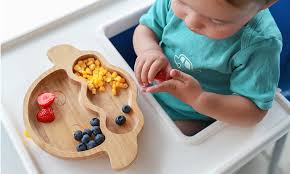As toddlers transition from infancy into their more active and explorative years, their dietary needs and abilities change dramatically. This period is marked by rapid development in physical and cognitive domains, making nutrition an essential pillar of their growth. Snacking is crucial in providing the energy and nutrients necessary for this developmental phase.
This article offers guidance on effectively handling toddler snacks and promoting optimal health and growth. Proper snacking ensures that toddlers receive a steady supply of energy and nutrients throughout their active days, which is essential given their rapid metabolism and small stomach capacity. It also introduces them to various tastes and textures, fostering an adventurous eating attitude that can minimise food neophobia.
Importance of Snacking in Toddlerhood
For a toddler, snacks are more than just minor fill-ins between meals; they are opportunities to fuel their growing bodies and minds around the day. Toddlers have smaller stomachs and higher energy needs, requiring more frequent meals and snacks to maintain their energy levels and cover their nutritional requirements. It also serves as a platform for introducing a diverse range of nutrients that may not be fully covered in regular meals. It is especially crucial in supporting various developmental milestones, such as language skills and physical coordination. Ensuring they are balanced and healthy can help stabilise a toddler’s mood and concentration throughout the day, making them essential for a harmonious daily routine.
Energy and nutrient-dense
It should be energy and nutrient-dense, providing vitamins, minerals, proteins, and healthy fats that support a toddler’s growth. These nutrients aid in everything from bone strength to brain development.
Development of Eating Skills
It also helps toddlers develop eating skills. Handling different textures and mastering spoons or fingers encourages fine motor development and sensory integration. Incorporating a range of food options, from soft fruits to slightly firmer vegetables, allows toddlers to practise biting and chewing, enhancing their oral motor skills.
Planning the Snacks
The choice of toddler snacks is pivotal in ensuring toddlers receive balanced nutrition without excessive sugars or unhealthy fats.
Whole Foods
Whole foods should form the base of the food selection. Fresh fruits cut into safe, manageable pieces or steamed vegetables like carrots and broccoli are excellent for nutrition and eating ease.
Protein Sources
Protein can be incorporated into foods like yoghurt, small cubes of cheese, or even well-cooked pieces of meat or beans. These help develop muscle and keep toddlers satiated longer.
Complex Carbohydrates
Complex carbohydrates found in whole-grain breads, cereals, and pasta provide sustained energy. To prevent choking hazards, they should be prepared in small, easy-to-consume sizes.
Hydration
Maintaining hydration is also critical. While water is the best option, incorporating foods with water content, such as cucumbers and watermelon, can contribute to overall fluid intake.
Safe Snacking Practices
Ensuring the safety of a toddler during snack times is paramount because they are still developing chewing and swallowing abilities.
Choking Prevention
Always supervise toddlers while they eat to address any potential choking quickly. Foods should be appropriate in size and texture to minimise risks.
Clean Eating Spaces
Keeping eating spaces clean can prevent the spread of bacteria and encourage toddlers to focus on their meals, making eating a pleasurable experience.
Snack Time as Learning Time
Snack times are not just for eating but also great learning and interaction opportunities.
Educational Opportunities
Discussing foods’ colours, shapes, and flavours can turn food time into a fun, educational activity that sparks curiosity about the world and builds language skills.
Independence
Allowing toddlers to choose from healthy options can foster independence and decision-making skills, essential aspects of cognitive development.
Routine Development
Establishing a routine around food times helps toddlers predict the structure of their day, contributing to a sense of security and developing time awareness.
Engaging the Senses
Engaging a toddler’s senses through diverse foods can enhance their sensory development and prevent picky eating habits.
Variety
Introduce a diversity of textures and tastes to encourage flexibility in eating habits and acceptance of new foods.
Interaction
Encourage toddlers to touch and smell their food before eating. This interaction can demystify new foods and increase the likelihood of acceptance.
Creating a Positive Snacking Environment
The environment in which foods are served plays a crucial role in how toddlers relate to food.
Calm Atmosphere
A calm, distraction-free environment allows toddlers to focus on eating and listen to their hunger and fullness cues, which is important for developing healthy eating patterns.
Family Involvement
When possible, snack time should be a family affair, with caregivers also partaking in healthy foods. This modelling helps toddlers understand and mirror healthy eating behaviours.
Handling snack time through toddlerhood is about providing food and nurturing growth, development, and healthy habits. Snacking can significantly influence a toddler’s health and development trajectory, from selecting the right snacks to creating an enriching environment. By implementing the above-mentioned practices, caregivers can ensure that snack times are both nourishing and educational, setting the stage for a lifetime of healthy eating habits.






